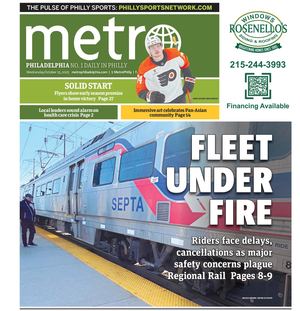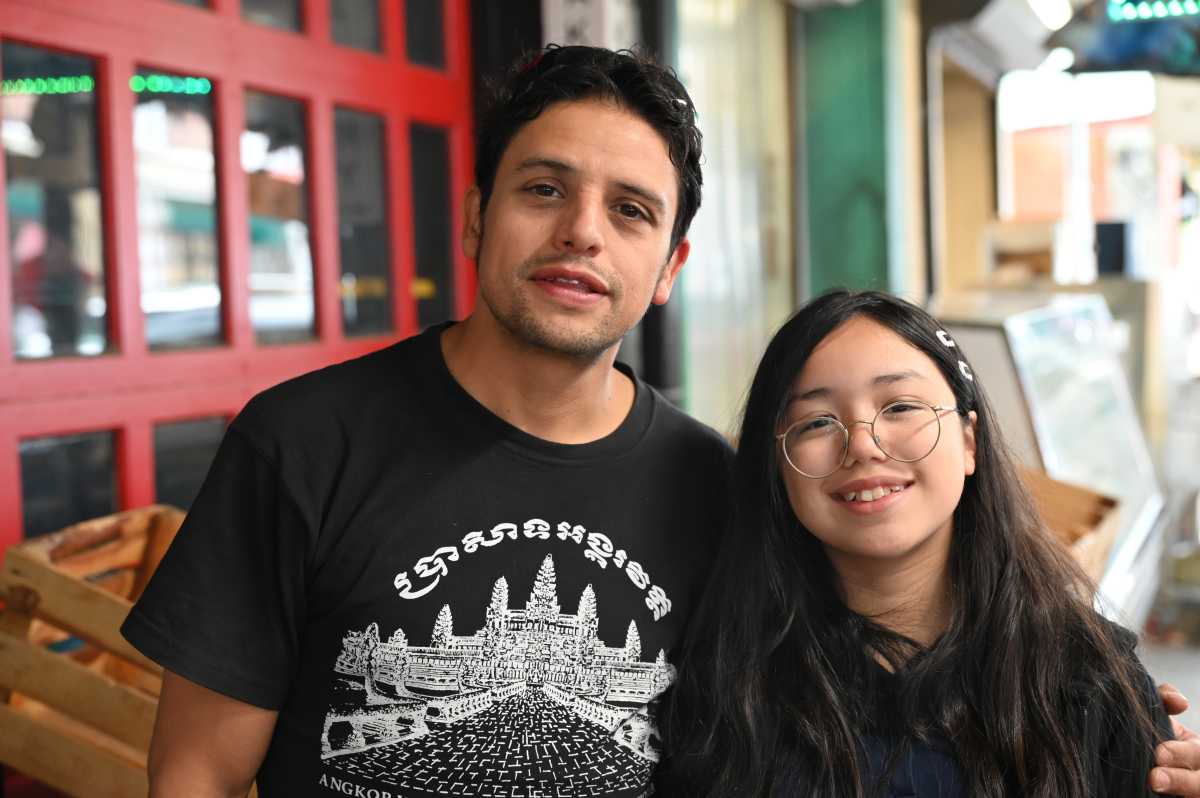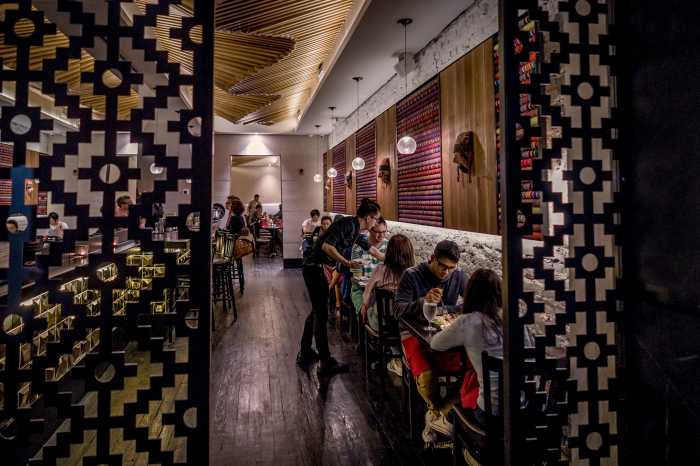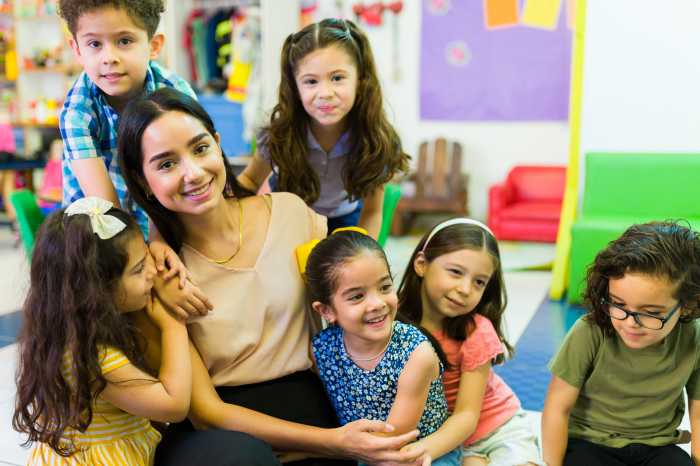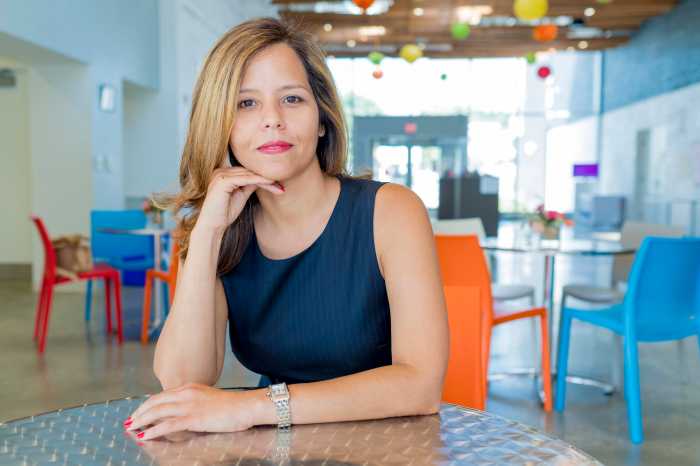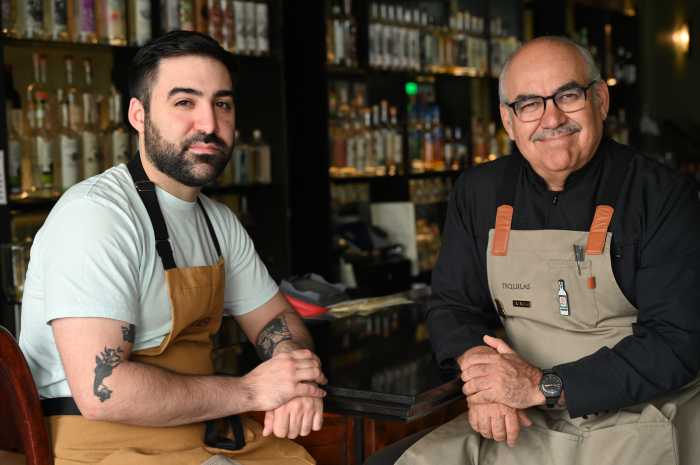Metro Philadelphia and 2PuntosLocalNews are collaborating to produce a series highlighting second- and third-generation Latines in Philadelphia.
Sonia Ortuño begins her day very early in the morning, traveling from New Jersey to South Philadelphia to earn a living as a baker and support her five children. Although it hasn’t been easy, she believes it has been worth it.
Over the six years that Ortuño has worked in Philadelphia, she has noticed an increase in the Latine population and greater growth opportunities, particularly for second- and third-generation Latine, like her children.
“There’s a difference in the way they think,” Ortuño shared. “They are more focused on their studies and aspire to achieve more than we have.”
For Ortuño, who was born in the city of Puebla, Mexico, the future looks bright, and her children are testament to that hope. She believes that the wheel is turning and that the second and third generations will be the ones to pave the way, even for their immigrant parents.
“In 10 years, I see Philadelphia becoming more Hispanic and Latino,” Ortuño said.
Marcos Tlacoplico and Alma Romero, owners of Marco’s Fish and Crab House in South Philadelphia, share a similar story to Ortuño. The couple has watched their second-generation children work towards living their own version of the American dream.
“As immigrants, we came here with dreams and did the jobs we could find,” Tlacoplico said. “When they saw the situation and the work, they said, ‘I don’t want to do this. I want to have a better and different life.”
Instead of following in the family business, they pursued professional careers. While their paths differ from their parents’, they are just as valid.
“That was exactly my point as an immigrant parent,” Tlacoplico admitted. “I wanted them to be more than us because we left our country, but they went out into the world.”
Violence clouds the future in North Philly
While some Latine individuals feel recent changes around Latine visibility and both economic and cultural opportunities have improved their lives, many others find their daily experiences overshadowed by a persistent wave of violence and discrimination, creating a seemingly endless nightmare. This is the reality for residents of North Philadelphia, particularly in Centro de Oro, the heart of Philadelphia’s Latine community.
“It’s harder now than it used to be,” Stefanie Torres said as she shopped for Puerto Rican instruments and records at Centro Musical. “The area has changed a lot. There’s a lot of violence now.”
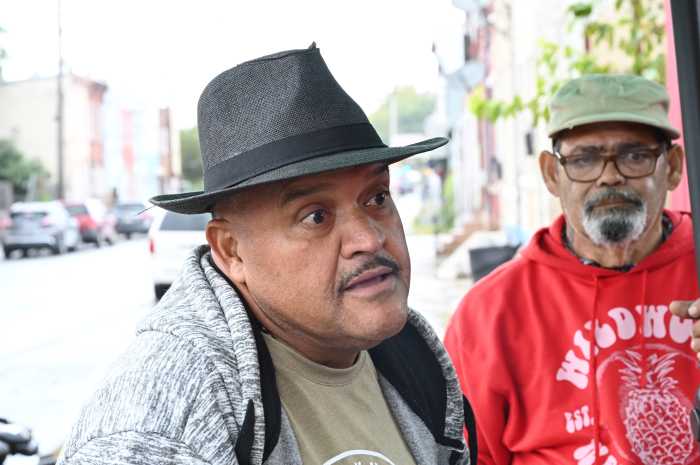
Ceferino Colón, who has lived in the Fairhill neighborhood for over 40 years, has witnessed the escalating violence firsthand. He spoke with deep nostalgia about losing one of his sons to gun violence and another to drug addiction, issues that have plagued the Philadelphia community for decades.
“I used to ride the train with my radio, and I would come back with my radio playing my music” Colón said. “Now you can’t do that. If I get on the train right now, I could be mugged or killed.”
A study conducted by the Center for Gun Violence Solutions at Johns Hopkins University reveals that Latines are six times more likely to die from gun homicides than whites. Additionally, research from Pew Charitable Trust shows that 58% of Hispanics in Philadelphia reported that gun violence has a “major negative impact” on their neighborhood’s quality of life.
For Colón, the future “doesn’t look very bright.” However, he remains hopeful that the younger generations will bring about the change that the community desperately needs.
The key is unity
Marilyn Rodríguez, director of education at Taller Puertorriqueño, emphasized several factors that significantly impact the future of the Latine community and reflect its concerns. These factors include rising housing costs due to gentrification, unemployment, gun violence, funding cuts to organizations that support the community, and the current political climate. Together, these issues create a domino effect that hinders access to education for second- and third-generation youth and instills fear regarding immigration policies.
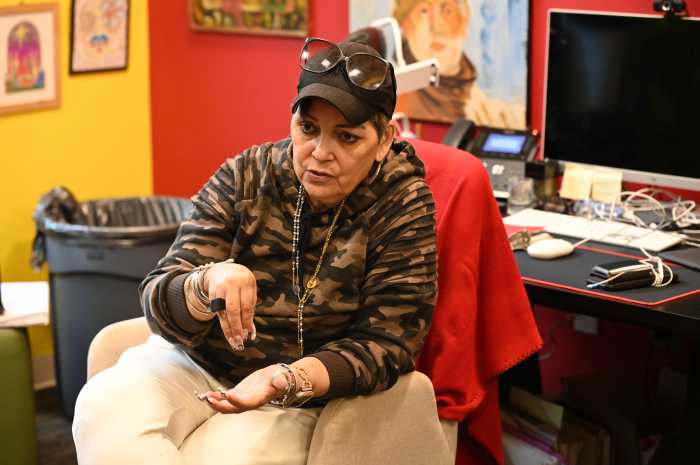
However, what worries Rodríguez the most, as a community leader and a representative of service-based organization, is the lack of unity among organizations working to create a better future for the Latine community. Her primary goal is to foster this essential unity and generate new ideas that strengthen the community’s bonds and roots.
“We need to unite more,” Rodríguez said. “I would truly love to see more of that happening,”
More cultural awareness
When Owen Sanmartin arrived in South Philadelphia from Colombia at the age of 12, his experience as a Latine was very different from what he sees today.
For Sanmartin, it was a culture shock because, “they didn’t see us as strong and capable people.” However, he now recognizes that Latine culture “is more accepted” and that the new generations have greater opportunities and a more optimistic outlook for the future.
He describes his daughter, Ivy Sanmartin, who is 12 years old and second-generation, as more globalized, partly due to her mixed Colombian and Vietnamese heritage. In fact, she views her identity as a blend of cultures but expresses a genuine interest in her Latine roots and in deepening her study of the Spanish language.
“I see a good future,” Ivy remarked about the Latine community in her neighborhood.
Metro Philadelphia is one of more than 25 news organizations powering the Philadelphia Journalism Collaborative. We do solutions reporting on things that affect daily life in our city where the problem and symptoms are obvious, but what’s driving them isn’t. Follow us at @PHLJournoCollab
¿Qué le depara el futuro a la próxima generación latina en Filadelfia?
Residentes locales comparten las esperanzas y temores de la comunidad latina.
Por Némesis Mora, 2PuntosLocalNews
Metro Philadelphia y 2PuntosLocalNews están colaborando para producir una serie que destaca a las generaciones segunda y tercera de Latines en Filadelfia.
Sonia Ortuño comienza su día muy temprano por la mañana, viajando desde Nueva Jersey hasta el sur de Filadelfia para ganarse la vida como panadera y mantener a sus cinco hijos. Aunque no ha sido fácil, ella cree que ha valido la pena.
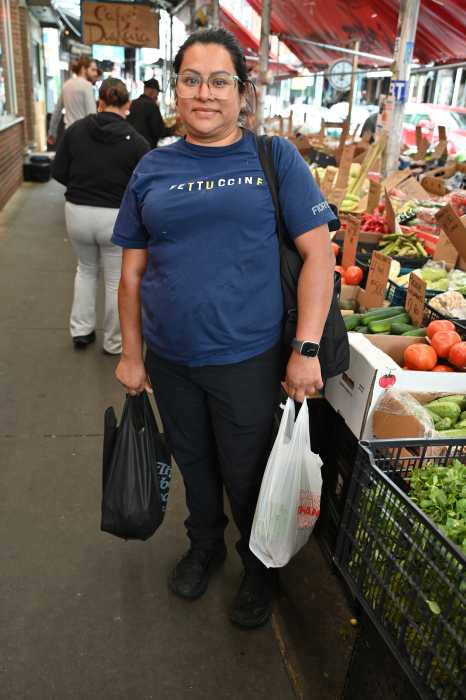
Durante los seis años que Ortuño ha trabajado en Filadelfia, ha notado un aumento en la población Latine y mayores oportunidades de crecimiento, particularmente para los Latines de segunda y tercera generación, como sus hijos.
“Hay una diferencia en la forma en que piensan,” compartió Ortuño. “Están más enfocados en sus estudios y aspiran a lograr más de lo que nosotros hemos logrado.”
Para Ortuño, quien nació en la ciudad de Puebla, México, el futuro se ve prometedor, y sus hijos son un testimonio de esa esperanza. Ella cree que la rueda está girando y que las generaciones segunda y tercera serán quienes abran el camino, incluso para sus padres inmigrantes.
“En 10 años, veo a Filadelfia convirtiéndose en una ciudad más hispana y latina,” dijo Ortuño.
Marcos Tlacoplico y Alma Romero, dueños de Marco’s Fish and Crab House en el sur de Filadelfia, comparten una historia similar a la de Ortuño. La pareja ha visto a sus hijos de segunda generación trabajar para alcanzar su propia versión del sueño americano.
“Como inmigrantes, llegamos aquí con sueños y trabajamos en los empleos que pudimos encontrar,” dijo Tlacoplico. “Cuando vieron la situación y el trabajo, dijeron: ‘No quiero hacer esto. Quiero tener una vida mejor y diferente.’”
En lugar de seguir en el negocio familiar, ellos persiguieron carreras profesionales. Aunque sus caminos difieren de los de sus padres, son igual de válidos.
“Ese era exactamente mi punto como padre inmigrante,” admitió Tlacoplico. “Quería que fueran más de lo que nosotros fuimos porque dejamos nuestro país, pero ellos salieron al mundo.”
La violencia ensombrece el futuro en North Philly
Mientras que algunos Latines sienten que los cambios recientes en la visibilidad Latine y las oportunidades económicas y culturales han mejorado sus vidas, muchos otros encuentran que sus experiencias diarias están dominadas por una persistente ola de violencia y discriminación, creando una pesadilla aparentemente interminable. Esta es la realidad para los residentes del norte de Filadelfia, particularmente en Centro de Oro, el corazón de la comunidad Latine de la ciudad.
“Ahora es más difícil que antes,” dijo Stefanie Torres mientras compraba instrumentos y discos puertorriqueños en Centro Musical. “El área ha cambiado mucho. Hay mucha violencia ahora.”
Ceferino Colón, quien ha vivido en el vecindario Fairhill por más de 40 años, ha sido testigo de la violencia creciente de primera mano. Habló con profunda nostalgia sobre la pérdida de uno de sus hijos a causa de la violencia armada y otro por adicción a las drogas, problemas que han afectado a la comunidad de Filadelfia durante décadas.
“Antes me subía al tren con mi radio, y regresaba con mi radio tocando mi música,” dijo Colón. “Ahora no puedes hacer eso. Si subo al tren ahora mismo, podría ser asaltado o asesinado.”
Un estudio realizado por el Center for Gun Violence Solutions de la Universidad Johns Hopkins revela que los Latines tienen seis veces más probabilidades de morir por homicidios con arma de fuego que los blancos. Además, investigaciones de Pew Charitable Trust muestran que el 58 % de los hispanos en Filadelfia reportaron que la violencia armada tiene un “impacto negativo importante” en la calidad de vida de su vecindario.
Para Colón, el futuro “no se ve muy prometedor.” Sin embargo, mantiene la esperanza de que las generaciones más jóvenes generen el cambio que la comunidad necesita desesperadamente.
La clave es la unidad
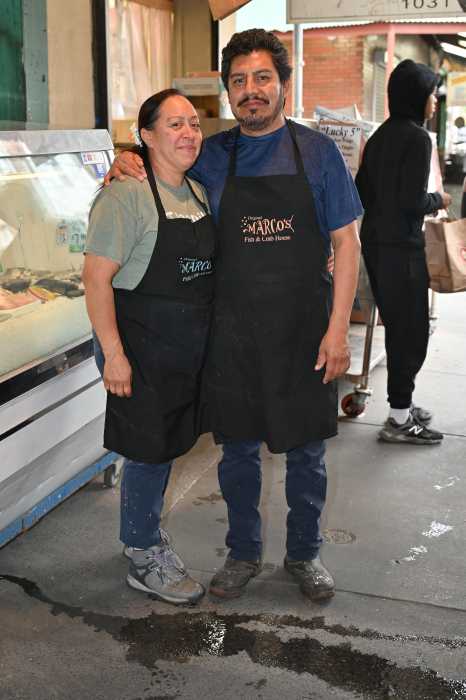
Marilyn Rodríguez, directora de educación en Taller Puertorriqueño, enfatizó varios factores que impactan significativamente el futuro de la comunidad Latine y reflejan sus preocupaciones. Estos factores incluyen el aumento del costo de la vivienda debido a la gentrificación, el desempleo, la violencia armada, los recortes de fondos a organizaciones que apoyan a la comunidad y el clima político actual. Juntos, estos problemas crean un efecto dominó que dificulta el acceso a la educación para los jóvenes de segunda y tercera generación e infunde temor respecto a las políticas migratorias.
Sin embargo, lo que más preocupa a Rodríguez, como líder comunitaria y representante de una organización de servicios, es la falta de unidad entre las organizaciones que trabajan para crear un mejor futuro para la comunidad Latine. Su objetivo principal es fomentar esta unidad esencial y generar nuevas ideas que fortalezcan los lazos y raíces de la comunidad.
“Necesitamos unirnos más,” dijo Rodríguez. “Me encantaría realmente ver que eso suceda más.”
Más conciencia cultural
Cuando Owen Sanmartin llegó al sur de Filadelfia desde Colombia a los 12 años, su experiencia como Latine era muy diferente de lo que ve hoy.
Para Sanmartin, fue un choque cultural porque “no nos veían como personas fuertes y capaces.” Sin embargo, ahora reconoce que la cultura Latine “es más aceptada” y que las nuevas generaciones tienen mayores oportunidades y una perspectiva más optimista sobre el futuro.
Describe a su hija, Ivy Sanmartin, quien tiene 12 años y es de segunda generación, como más globalizada, en parte debido a su herencia mixta colombiana y vietnamita. De hecho, ella ve su identidad como una mezcla de culturas, pero muestra un interés genuino en sus raíces Latine y en profundizar su estudio del idioma español.
“Veo un buen futuro,” comentó Ivy sobre la comunidad Latine en su vecindario.
